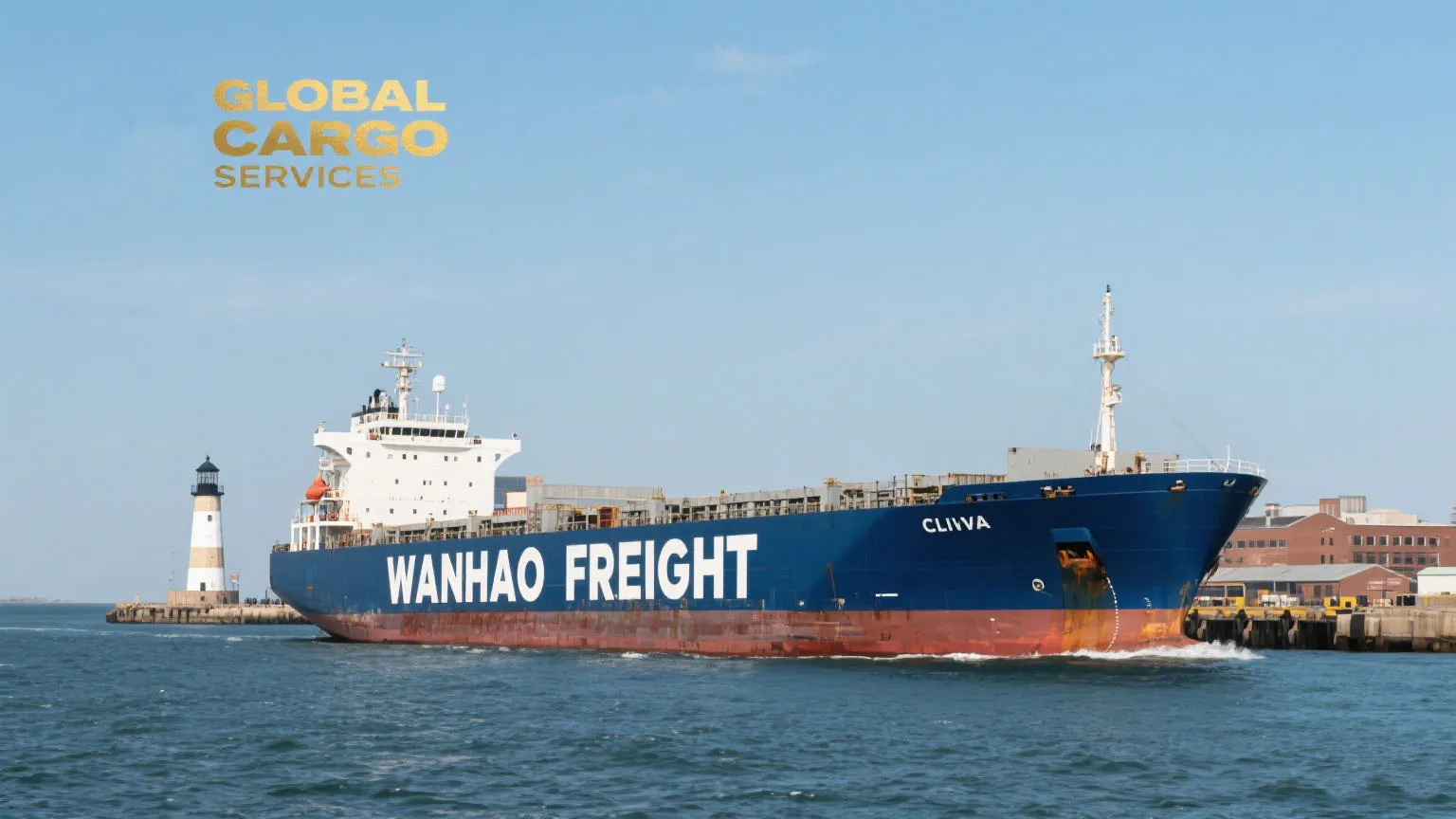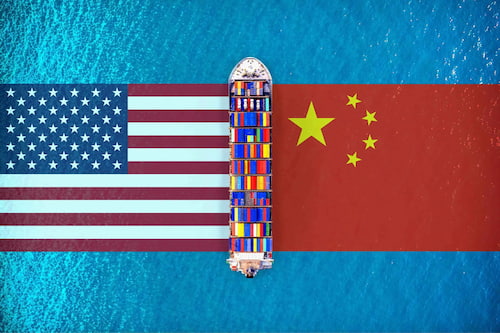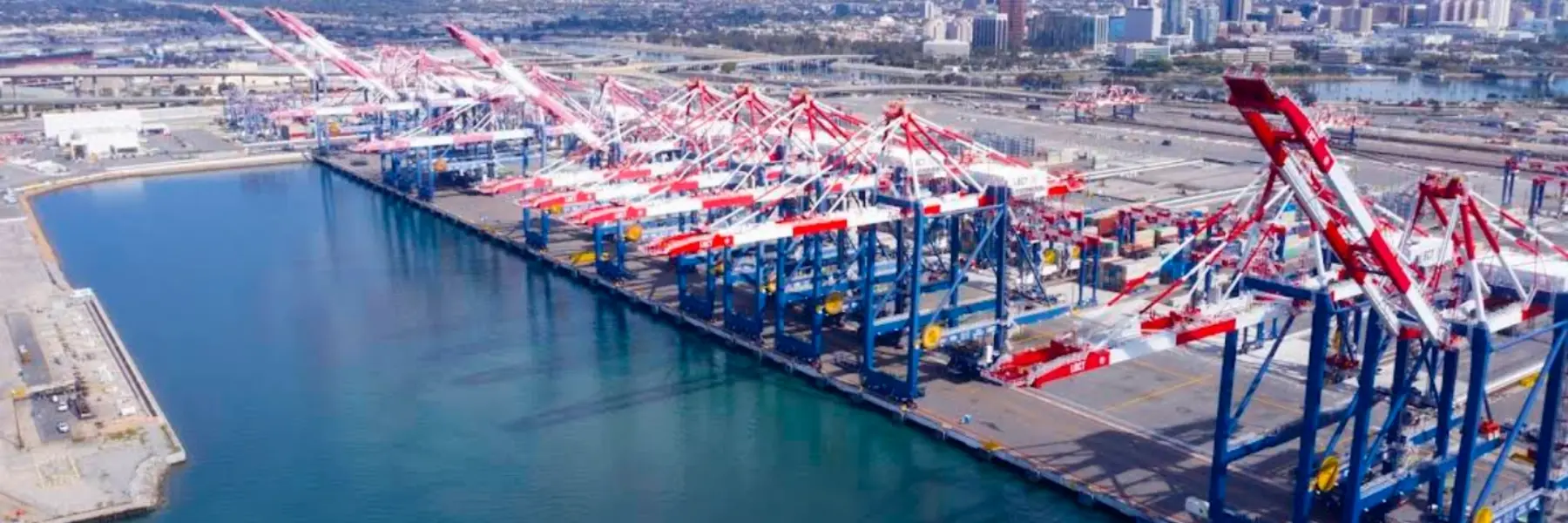
Shipping from China to Charlotte: A Comprehensive Logistics Guide
In today’s globalized business landscape, shipping from China to Charlotte has become a cornerstone for enterprises aiming to tap into the U.S. Southeast market. Charlotte, a thriving economic hub in North Carolina, renowned for its robust manufacturing sector, booming tech industry, and strategic location near major consumer centers like Atlanta and Raleigh, relies heavily on seamless import logistics. Whether you’re importing automotive parts, electronic components, consumer goods, or bulk raw materials, mastering the intricacies of shipping from China to Charlotte is key to maintaining operational efficiency and competitive advantage. This guide covers every critical aspect of the process—from selecting the right shipping mode to navigating customs clearance—with a focus on how WanHaoFreight, a leading China Freight forwarder, can simplify your supply chain.
Choosing the Right Shipping Mode: Sea Freight vs. Airfreight for Charlotte - Bound Cargo
When planning shipping from China to Charlotte, the choice between sea freight and airfreight depends on your cargo’s size, urgency, budget, and specific requirements. Both methods offer distinct advantages, and understanding their differences is essential for making informed decisions.
Sea Freight: Cost - Effective Solution for Bulk and Non - Urgent Shipments
Sea freight remains the most popular choice for businesses shipping large - volume, non - time - sensitive cargo to Charlotte. It provides significant cost savings compared to airfreight, making it ideal for items such as heavy machinery, construction materials, bulk textiles, and large quantities of consumer goods. Within sea freight, two primary options cater to different cargo volumes: Ocean FCL (Full Container Load) and Ocean LCL (Less than Container Load).
Ocean FCL: This option is perfect for businesses with cargo that fills an entire container (20ft or 40ft). For example, if you’re a Charlotte - based manufacturing firm importing a full shipment of industrial valves from China, Ocean FCL is the optimal choice. With FCL, you have exclusive use of the container, eliminating the risk of cargo damage from other shippers’ goods and reducing delays caused by consolidation or deconsolidation. Transit times from major international seaports in China—such as Shanghai, Shenzhen, and Ningbo—to U.S. ports serving Charlotte (like the Port of Charleston in South Carolina or the Port of Savannah in Georgia) typically range from 20 to 40 days. The cost for a 40 - foot FCL container from Shanghai to the Port of Charleston starts at approximately 1,500 to 3,000, depending on market conditions, fuel prices, and seasonal demand. As a trusted China Freight forwarder, WanHaoFreight leverages its long - standing partnerships with top carriers like Maersk, COSCO, and MSC to secure competitive rates and reliable sailings for FCL shipments, ensuring your cargo reaches Charlotte on schedule.
Ocean LCL: For smaller shipments that don’t fill a full container, Ocean LCL offers a cost - efficient alternative. If you’re a small - to - medium - sized enterprise (SME) in Charlotte importing a few pallets of tech accessories or specialty food products from China, LCL allows you to share container space with other shippers, lowering upfront costs. LCL rates are calculated based on cargo volume, usually starting from 80 to 150 per cubic meter. However, LCL shipments often have longer transit times—around 28 to 50 days—due to the time required for cargo consolidation at the origin port and deconsolidation at the U.S. port. WanHaoFreight excels in managing LCL shipments, ensuring careful handling, real - time tracking, and timely delivery to Charlotte. They also handle all LCL - specific documentation, such as house bills of lading, to prevent delays and ensure compliance.
After arriving at U.S. seaports, cargo bound for Charlotte requires inland transportation. This typically involves trucking, as Charlotte is within a 4 - to 8 - hour drive from major ports like Charleston (about 4.5 hours) and Savannah (about 6 hours). For very large shipments, a combination of rail and trucking may be more economical, with rail transit from the Port of Charleston to Charlotte taking approximately 1 to 2 days, followed by short - haul trucking to your final destination. WanHaoFreight coordinates all inland transport, partnering with reliable local carriers to ensure seamless delivery from the port to your Charlotte warehouse or business location.
Airfreight: Speed for Time - Critical Cargo
When speed is a priority—such as for urgent orders, perishable goods, high - value electronics, or time - sensitive components—airfreight is the go - to option for shipping from China to Charlotte. Airfreight drastically reduces transit times, ensuring your cargo reaches Charlotte quickly to meet tight deadlines.
Transit times from major Chinese airports (Shanghai Pudong, Shenzhen Bao'an, Guangzhou Baiyun) to Charlotte Douglas International Airport range from 3 to 7 days, including customs clearance. This rapid delivery is invaluable for businesses that can’t afford delays, such as those supplying components to Charlotte’s tech or automotive industries. However, airfreight comes with a higher cost. Rates start at 3.00 to 10.00 per kilogram, depending on cargo weight, size, and special handling requirements (like temperature control for pharmaceuticals or fragile packaging for electronics). Additional fees may apply, including fuel surcharges (5% to 12% of the base rate), security fees (20 to 50 per shipment), and airport handling charges (35 to 85 per shipment).
WanHaoFreight offers tailored airfreight services to Charlotte, including door - to - door delivery, cargo insurance, and expedited documentation processing. They work with leading airlines like China Southern, Delta, and American Airlines to secure available cargo space, even during peak seasons (such as holiday rushes or trade show periods). Whether you’re shipping a small batch of high - value medical devices or an urgent order of tech parts, WanHaoFreight ensures your airfreight shipment arrives in Charlotte on time and in perfect condition.
Understanding Freight Costs for Shipping from China to Charlotte
To effectively budget for shipping from China to Charlotte, it’s essential to understand the various cost components associated with sea freight and airfreight, as well as potential additional fees.
Sea Freight Cost Breakdown
For Ocean FCL shipments, the base freight rate is just one part of the total cost. Other key charges include:
4. Terminal Handling Charges (THC): These fees, charged by ports for loading and unloading containers, range from 100 to 300 per container, depending on the port and container size (20ft vs. 40ft).
5. Documentation Fees: Covering the preparation of bills of lading, customs declarations, and other necessary paperwork, these fees typically cost 50 to 100 per shipment.
6. Container Deposit: A refundable fee (usually 400 to 900 per container) held by the carrier until the container is returned in good condition after delivery.
7. Special Handling Fees: For cargo requiring extra care—such as oversized items, hazardous materials, or refrigerated goods—fees can range from 180 to 750 or more, depending on the complexity of handling. For example, refrigerated containers (reefers) may incur an additional daily charge to maintain temperature control.
For Ocean LCL shipments, in addition to the per - cubic - meter rate, you’ll encounter:
8. Consolidation/Deconsolidation Fees: Charged for combining LCL cargo at the origin port and separating it at the U.S. port, these fees are typically 50 to 150 per shipment.
9. Destination Handling Fees: Covering port storage, cargo inspection, and transfer to inland carriers, these range from 85 to 190 per shipment.
10. Minimum Charge: Most freight forwarders impose a minimum charge for LCL shipments (usually equivalent to 1 cubic meter) to cover administrative costs, even if your cargo is smaller.
Airfreight Cost Breakdown
Airfreight costs are primarily based on “chargeable weight”—the greater of the cargo’s actual weight or its volumetric weight (calculated as length × width × height in centimeters divided by 6,000). Beyond the base per - kilogram rate, common fees include:
11. Fuel Surcharges: Fluctuating with global oil prices, these surcharges usually account for 5% to 12% of the base airfreight cost. For example, if the base rate is 5 per kilogram, a 10% fuel surcharge adds 0.50 per kilogram.
12. Security Fees: Mandated by aviation authorities to cover anti - terrorism measures, these fees are 20 to 50 per airfreight shipment.
13. Airport Handling Charges: Covering cargo acceptance, storage, and loading onto the aircraft, these range from 35 to 85 per shipment.
14. Special Handling Fees: For fragile, oversized, or temperature - controlled cargo, fees can be 90 to 450 or more. For instance, shipping fragile electronic components may require shock - proof packaging and incur a $150 special handling fee.
To get an accurate, personalized cost estimate for shipping from China to Charlotte, use WanHaoFreight’s Get A Quote service. Simply provide details like cargo type (e.g., “automotive parts”), weight, volume, origin (Chinese city/port, such as “Shenzhen”), and desired delivery timeline (e.g., “30 days”), and WanHaoFreight will deliver a comprehensive quote within 24 hours. This transparency helps you avoid unexpected costs and plan your budget effectively.
Navigating Shipping Schedules for Charlotte - Bound Cargo
Reliable shipping schedules are crucial for maintaining a smooth supply chain when shipping from China to Charlotte. Understanding carrier schedules and booking in advance ensures your cargo arrives when you need it, avoiding production delays or stockouts.
Sea Freight Schedules
Major carriers offer regular sailings from Chinese international seaports to U.S. ports serving Charlotte. Key routes and schedules include:
15. Shanghai Port to Port of Charleston: Carriers like Maersk and COSCO offer weekly sailings, with departures every Sunday and Wednesday. Transit times average 20 to 28 days.
16. Shenzhen Port to Port of Savannah: MSC and Hapag - Lloyd provide weekly sailings, departing every Monday and Friday. Transit times range from 22 to 32 days.
17. Ningbo Port to Port of Wilmington (North Carolina): CMA CGM offers biweekly sailings, departing every Tuesday and Saturday. Transit times average 24 to 30 days.
It’s recommended to book sea freight shipments 3 to 4 weeks in advance, especially during peak seasons. Peak periods for shipping to Charlotte include August to October (to stock up for holiday sales) and January to February (post - holiday restocks for retail and manufacturing). WanHaoFreight monitors carrier schedules in real time, helping you choose the most suitable sailing based on your delivery needs and budget. They also provide updates on potential delays—such as port congestion or weather - related issues—and offer alternative routes if needed.
Airfreight Schedules
Airfreight offers more frequent options for shipping from China to Charlotte, with daily or multiple weekly flights from major Chinese airports to Charlotte Douglas International Airport or nearby hubs (like Hartsfield - Jackson Atlanta International Airport, with connecting transport to Charlotte). Key air routes include:
18. Shanghai Pudong to Charlotte Douglas International Airport: Delta Air Lines operates daily flights, with a stopover in Atlanta. Total transit time (including stopover and customs clearance) is 3 to 5 days.
19. Shenzhen Bao'an to Atlanta Hartsfield - Jackson Airport: China Southern Airlines offers 5 weekly flights (Monday, Wednesday, Thursday, Saturday, Sunday). From Atlanta, cargo is trucked to Charlotte (about 3.5 hours), with total transit time of 4 to 6 days.
20. Guangzhou Baiyun to Charlotte Douglas International Airport: American Airlines operates 4 weekly flights (Tuesday, Wednesday, Friday, Sunday), with direct cargo service. Transit time is 3 to 4 days.
While airfreight is faster, booking in advance is still important during peak periods—such as tech industry trade shows or medical supply emergencies. WanHaoFreight can secure cargo space on the earliest available flights, ensuring your urgent shipments reach Charlotte on time. They also coordinate with airlines to prioritize time - critical cargo, such as perishable goods or emergency replacement parts.

Destination Port Customs Clearance Considerations for Charlotte
Clearing U.S. customs is a critical step in shipping from China to Charlotte. Navigating customs regulations correctly avoids delays, fines, and unexpected costs. Here’s what you need to know to ensure a smooth clearance process.
Essential Documentation
To clear customs, you must submit accurate and complete documentation. The key documents include:
21. Commercial Invoice: A detailed document that includes the cargo’s description (e.g., “100 units of wireless headphones”), quantity, unit price, total value, HTS (Harmonized Tariff Schedule) code, and the names/addresses of the shipper (in China) and consignee (in Charlotte). The invoice must be signed and dated, and values must match the actual transaction to avoid customs scrutiny.
22. Packing List: An itemized list of all goods in the shipment, including each item’s weight, dimensions, and packaging type (e.g., “5 cartons, each 50cm × 40cm × 30cm, 10kg per carton”). This helps customs officials verify the cargo’s contents and ensure it matches the commercial invoice.
23. Bill of Lading (BOL) for Sea Freight or Air Waybill (AWB) for Airfreight: These are legal documents issued by the carrier that serve as a receipt for the cargo and a contract for transportation. The BOL/AWB includes details like the origin port/airport, destination port/airport, and container/flight number.
24. Importer Security Filing (ISF): For sea freight shipments, the ISF (also known as “10+2”) must be submitted to U.S. Customs and Border Protection (CBP) at least 24 hours before the cargo is loaded onto the vessel in China. The ISF includes 10 data elements (e.g., importer of record, consignee) and 2 additional elements (vessel stow plan, container status message).
25. Certificate of Origin (CO): Required for certain products to qualify for preferential duty rates under trade agreements like the USMCA (United States - Mexico - Canada Agreement). The CO verifies that the goods were manufactured in China and meets the agreement’s rules of origin.
WanHaoFreight assists with preparing and submitting all customs documentation, ensuring accuracy and compliance with CBP regulations. Their team of experts reviews each document to catch errors—such as incorrect HTS codes or missing signatures—that could lead to delays.
Duties and Taxes
U.S. customs duties are imposed on most goods imported from China, with rates varying based on the product’s HTS code. Examples of common duty rates for Charlotte - bound cargo include:
26. Automotive Parts: HTS codes for engine components typically have a duty rate of 2.5% to 5%.
27. Consumer Electronics: Wireless headphones (HTS code 8518.30.0000) have a duty rate of 0% to 3%.
28. Textiles: Cotton t - shirts (HTS code 6205.20.0000) have a duty rate of 10% to 15%.
In addition to duties, a Merchandise Processing Fee (MPF) is charged on most imports. The MPF is 0.3464% of the cargo’s declared value, with a minimum fee of 27.75 and a maximum fee of 538.40 per shipment. For example, if your cargo has a declared value of 10,000, the MPF would be 34.64 ($10,000 × 0.003464).
WanHaoFreight helps you calculate the estimated duties and taxes for your shipment using the correct HTS codes. They also provide guidance on duty - saving strategies, such as utilizing free trade zones (FTZs) in Charlotte or applying for duty drawbacks (refunds for goods that are exported after importation). For example, if you import parts to assemble products in Charlotte and then export the finished goods to Canada, you may qualify for a duty drawback.
Customs Compliance and Potential Challenges
To avoid customs delays or penalties, it’s crucial to comply with CBP regulations. Common compliance issues and how to address them include:
29. Inaccurate Documentation: Errors like incorrect HTS codes, undervalued goods, or missing signatures are the leading cause of customs holds. WanHaoFreight’s documentation team reviews all paperwork thoroughly, cross - checking values, HTS codes, and item descriptions to ensure accuracy.
30. Restricted or Prohibited Goods: Certain items are restricted or prohibited from importation into the U.S. For example, counterfeit goods, illegal drugs, and some agricultural products are prohibited. Restricted items—like pharmaceuticals, firearms, and electronics with radio frequencies—require special permits. WanHaoFreight advises on restricted goods and helps obtain necessary permits (e.g., FDA approval for medical devices) before shipping.
31. Cargo Inspections: CBP may randomly select shipments for inspection, or target shipments based on risk factors (e.g., high - value goods, new importers). Inspections can delay delivery by 1 to 3 days. If your shipment is selected, WanHaoFreight coordinates with CBP to provide additional documentation and facilitate the inspection, minimizing delays.
32. Tariff Engineering: For complex products, tariff engineering (optimizing the product’s design or classification to qualify for lower duty rates) can save costs. WanHaoFreight’s customs experts can advise on tariff engineering strategies, such as reclass
 Easy Shipping From Global, Save Cost
Easy Shipping From Global, Save Cost













